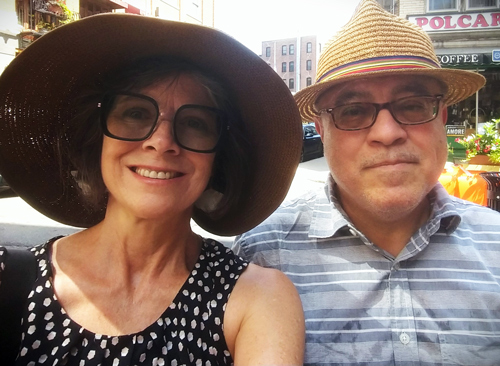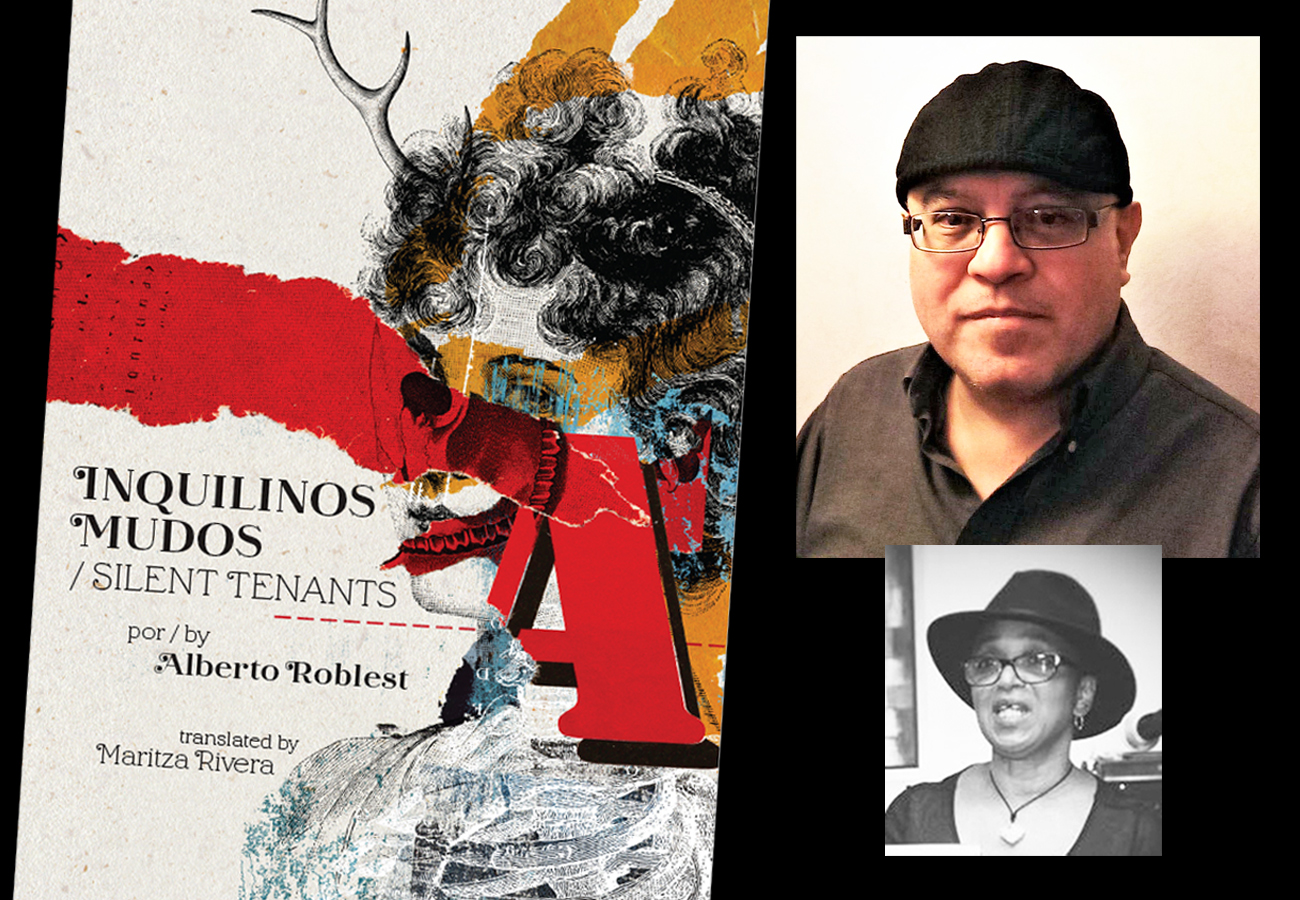Day Eight is proud to announce forthcoming release of the poetry book Silent Tenants / Inquilinos Mudos by Alberto Roblest. The book will be published May 15, 2023 in Spanish and with English language translations by Maritza Rivera. For advanced copies of the book, to schedule readings, or to interview the authors, email admin <at> DayEight.org. Poems in the book speak in the diverse voices of protagonists who due to fear, rejection, uncertainty, and discrimination, embrace silence to find their community. The book shares the Latin American immigrant experience, and highlights the importance of naming things in another language.

Alberto Roblest is a Mexican-American multi-disciplinary artist, poet, and essayist, and co-founder of the dual-language news website, Hola Cultura. His written work has been published broadly, including recently a book of his short stories, Against the Wall, published in English translation by the University of Houston’s Arte Publico Press in 2021. His prior published poetry books include Las Andanzas del Huy Huy y el Chichicaxtle con su Ñero (2000); Ortografía para piromaniacos (2002); and, Entre los Signos el diminutivo (2012). Silent Tenants is Roblest’s first poetry book in more than a decade. Literary journals that have published Mr. Roblest’s work include La Jornada Semanal, Félix Magazine, Revista de la Universidad Nacional, Revista Generación, Casa del Tiempo, RazaTeca, Asalto al Cielo, Poesía Relim, and Revista Baquiana. Translator Maritza Rivera is a well-published poet in both English and Spanish, an army veteran and puerto riqueno, and founder of the Mariposa Poetry Retreat. Rivera was co-editor of Day Eight’s 2022 published afro-latin poetry anthology, Diaspora Café: D.C. Artwork for the book’s cover is by Alvaro Sanchez.
Day Eight’s Sarah Katz conducted the following interview with Roblest to learn more about the forthcoming collection and his poetry practice.
SK: What inspired you to write Inquilinos Mudos / Silent Tenants?
Alberto Roblest: My neighbors. In the Columbia Heights area, and in the building where I live, there are still Latinos, we are few. Sometimes we talk. They tell me about their hardships, their achievements, their progress in learning the English language, etc. Being a Spanish teacher and perhaps because I studied communication; linguistics, semantics and also the learning process of another language and another culture have always fascinated me.
SK: Did any special or unusual circumstances or incidents play a role in the conception and/or writing of this book?

AR: I broke my foot, they put three screws in the heel area. I had to rest. I spent a season healing and another, no less long, recovering. While this was happening, the second wave of COVID was unfolding. Uncertainty in an empty city. In those sad and strange days, it became necessary to visit the hospital. The trip left me speechless. The most impressive thing were the empty streets, the absolute silence, a city that seemed abandoned by its inhabitants… except for the Latinos who continued to work, and obviously the doctors, nurses and all the health personnel who were always up to date in the middle of that abandoned city. At the time, they were called “essential workers”.
SK: What is your writing process like?
AR: I write outdoors. On the street while waiting for the bus, on the subway, sometimes at the Malcolm X Park, or other public space. Everything on my old Tablet, and sometimes in a small notebook that I always carry with me.
SK: Which writers inspire you?
Octavio Paz, Pablo Neruda, Walt Whitman, Arthur Rimbaud, Sylvia Plath, Allen Ginsberg, Diane Di Prima… among other great poets.
SK: What was the hardest poem to write?
Some poems take longer than others. From this book I think the poem: “Bilingûe: Scattered Phrases- Letters”. Something like a couple of years, maybe.

